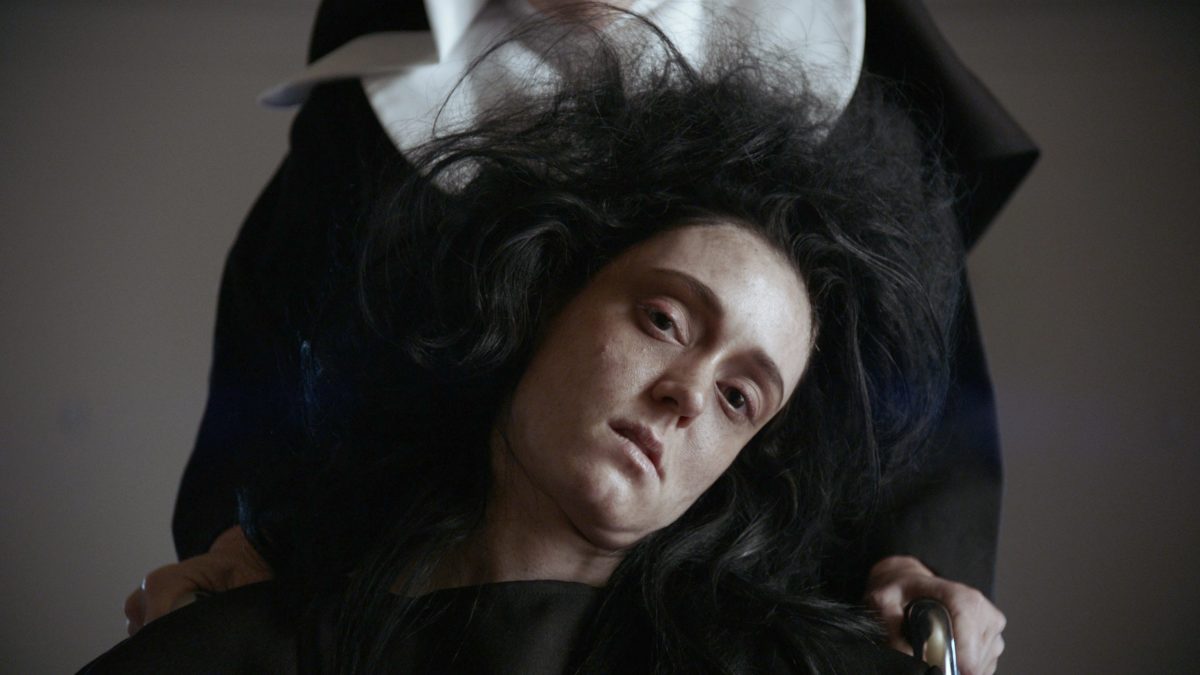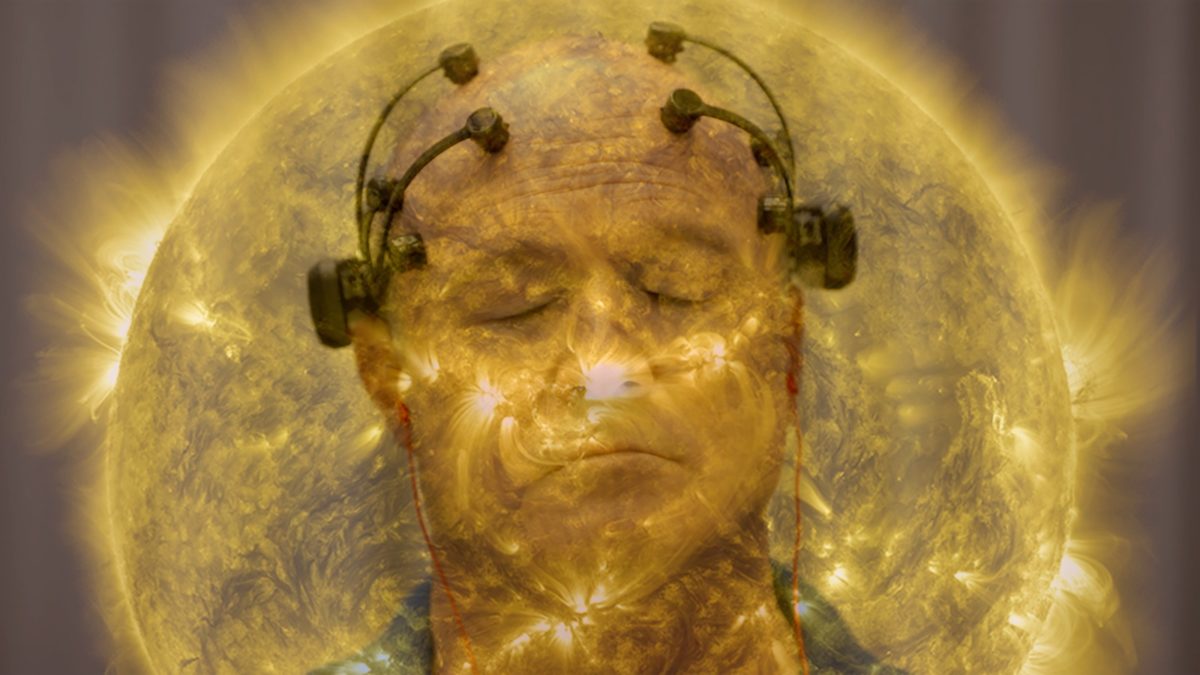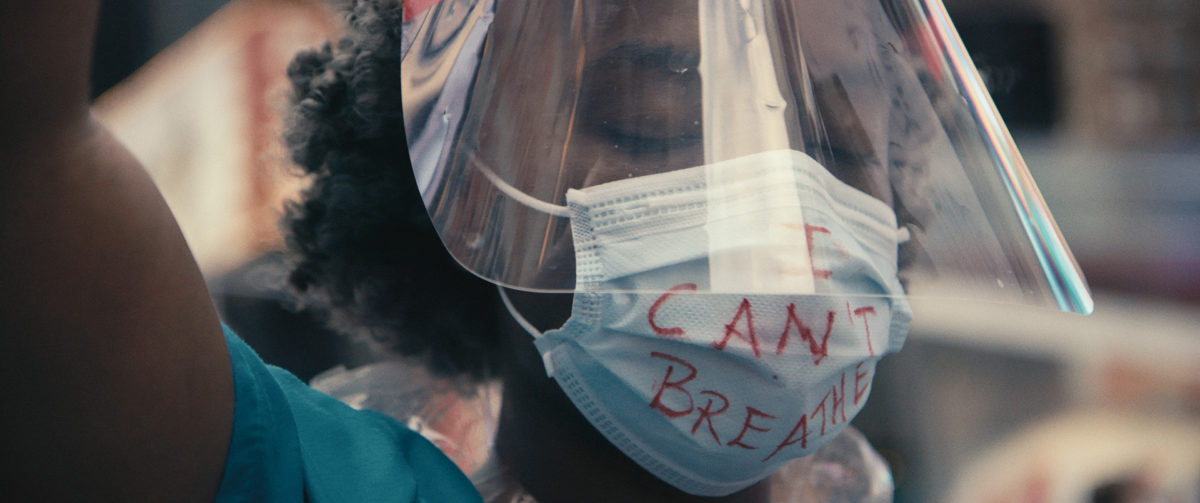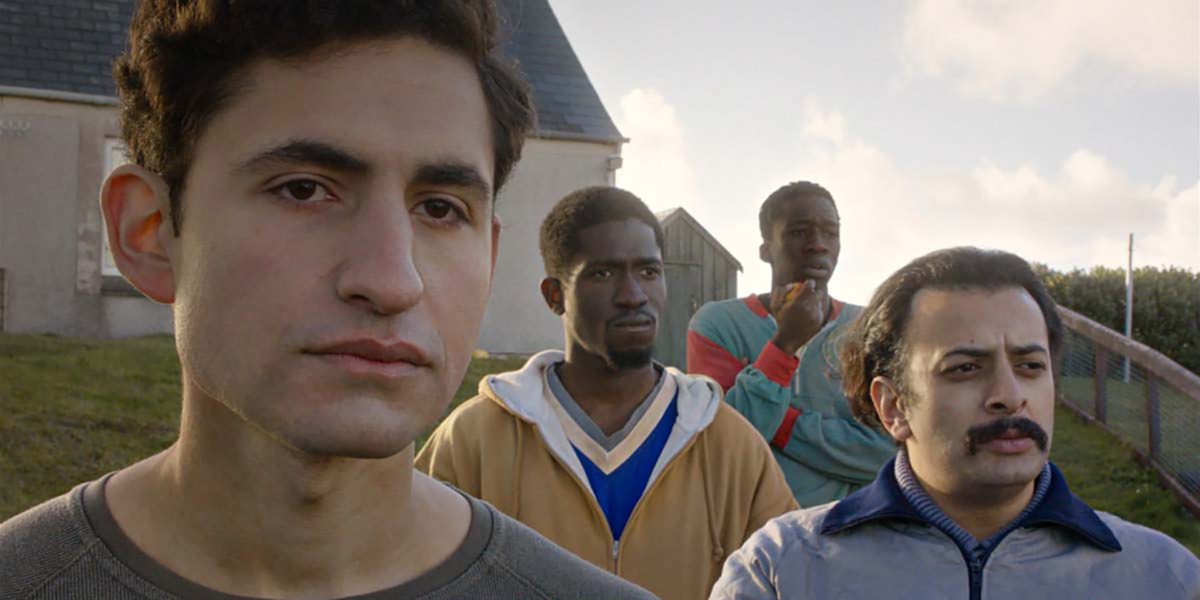Each week we highlight the noteworthy titles that have recently hit streaming platforms in the United States. Check out this week’s selections below and past round-ups here.
See our comprehensive guide to where to stream the best films of 2021.
Agnes (Mickey Reece)

Agnes begins how any other possession film might––with the discovery of a demonic presence. When the convent of Saint Theresa fear there’s evil inhabiting the body of one of their young nuns, they outsource help from the diocese. Things quickly, expectedly start to unravel from there. But director Mickey Reece wants you to forget everything you know about possession and exorcism in film––or, well, maybe not. Because part of what makes his new feature Agnes work so beautifully is its very upending of expectations for that particular (and, arguably, very tired) horror subgenre. With over twenty-five feature films thus far, spanning his career since 2008 as a lower-budget indie darling––and who impressed with a wider reach with last year’s Fantasia staple Climate of the Hunter––Reece makes clear how films like The Conjuring franchise have been failing us. Reece (alongside co-writer John Selvidge) has crafted a disarming, funny, incredibly unique take on demonic possession about faith, womanhood, and, of course, horny nuns. – Brianna Z. (full review)
Where to Stream: VOD
All About My Sisters (Wang Qiong)

All About My Sisters, the nearly three-hour documentary debut from Wang Qiong, could be called All About My Sister. More specifically her sister Jin, who was abandoned at birth during the height of China’s One-Child Policy. Jin was raised by her uncle and grandmother, and some 25 years later Wang interviews Jin, her biological parents, and her extended family over the course of several years. Unflinching in her questioning of the abandonment and how it affected each individual party, the film moves throughout Jin’s life with persistence and without rush. The result is an affecting, brutal look at the real-life trauma of the One-Child Policy for one economically struggling family in a rural area of China. – Michael F. (full review)
Where to Stream: OVID.tv
All Light, Everywhere (Theo Anthony)

Seemingly birthed from some kind of virtuosic computer algorithm or beamed directly from outer space, Theo Anthony’s debut feature Rat Film was a peculiarly engaging, wholly fascinating documentary. Using the population of rats to chart the history of classism and systemic racism throughout Baltimore over decades, it heralded an original new voice in nonfiction filmmaking. When it comes to his follow-up All Light, Everywhere, Anthony casts a wider focus while still retaining the same unique vision as he explores how technological breakthroughs (and pitfalls) in filmmaking have reverberated throughout history to both embolden and trick our perceptions of perspective. To thread these strands and see its modern-day effects, the majority of the film looks at the engineering behind police body cameras, and the extensive use of those devices and other surveillance equipment to support officers in cases where evidence might otherwise come down to only verbal testimonies. – Jordan R. (full review)
Where to Stream: Hulu
Attica (Stanley Nelson and Traci Curry)

There’s a moment towards the end of Stanley Nelson and Traci Curry’s documentary Attica where a white state trooper is seen putting his fist in the air while screaming, “That’s White Power!” The other men around him smile and cheer because they’ve scored a victory for white men in blue. They’ve just taken back the maximum-security Attica Correctional Facility after a five-day stand-off where about 1,200 inmates rebelled and took 42 staff members hostage to negotiate prison reform. And they did it, in their own words, with “White Power.” How is “White Power” defined? Well, as the footage and first-hand accounts reveal, it means knowingly picking off unarmed Black and Brown men with high-powered artillery after saying they wouldn’t be hurt. “White Power” is white supremacy. And cowardice. – Jared M. (full review)
Where to Stream: Showtime
Faya Dayi (Jessica Beshir)

“Look how far God has brought us. We can only go where God guides us to. We are exactly where God wants us to be.” These are the first words spoken in Jessica Beshir’s ruminative and ravishing feature debut Faya Dayi, and it establishes a conversational dialogue with a higher realm that carries through the rest of this graceful, ethereal journey through Ethiopia. Specifically exploring the trade of the khat leaf––a hallucinatory plant used by Sufi Muslims for religious meditation but has now become Ethiopia’s most lucrative cash crop––Beshir deeply immerses the viewer into daily work, spiritual ponderings, and questions of life’s purpose. At times recalling Apichatpong Weerasethakul’s striking black-and-white debut Mysterious Object at Noon and the vivid chiaroscuro work of Pedro Costa, Faya Dayi shares a similar approach to mixing documentary and narrative elements to form a transportive ethnographic survey. – Jordan R. (full review)
Where to Stream: The Criterion Channel
The First Wave (Matthew Heineman)

I wonder when we’ll grow numb to movies about the COVID-19 crisis. Anyone saying they already have is either lying or living a life of privilege wherein the continued ebb and flow of hospitalization numbers has yet to personally impact them. They’re also the ones posing the biggest threat to those who’ve yet to take a breath because they’re the ones who care more about a “normal” that may never exist again than the health of a marginalized stranger who never experienced that same “normal” before the pandemic let alone now that we’re still very much inside of it. Watching Matthew Heineman’s documentary The First Wave isn’t therefore a casualty of diminishing returns due to a false sense of redundancy. If anything, it proves more powerful from accumulation. – Jared M. (full review)
Where to Stream: Hulu
Just Don’t Think I’ll Scream (Frank Beauvais)

After watching over 400 films in the span of just around four months, director Frank Beauvais reflects on his life and what led to this cinematic hibernation in Just Don’t Think I’ll Scream, an impressive, rapidly-edited, and deeply personal cinematic essay. Created solely from clips of the films he watched, it’s far from the kind of video essays that dominate YouTube, rather selecting the briefest of moments, and usually the least-recognizable of shots, in crafting this self-exploration of a reflective, questioning mind. – Jordan R.
Where to Stream: MUBI (free for 30 days)
Lapsis (Noah Hutton)

Lapsis says and does a lot with its lo-fi aesthetics because it knows when to utilize its modest budget on computer graphic enhancements and when to let its endearing cast take the reins and run with things in a way that we can relate to as people caught in a similar cycle of economic warfare. And it’s Imperial who leads the charge with a deconstruction of the tough-guy persona trying his damnedest to wrap his head around things well past his pay-grade in order to seize this opportunity both socially and romantically (he’s into Anna). I’m still not sure what Hutton is doing with a cryptic ending I’m completely in the dark about, but it has me wanting to re-watch and discover what else I might have missed. – Jared M. (full review)
Where to Stream: Film Movement Plus
Last and First Men (Jóhann Jóhannsson)

If any film composer of the last decade defined the period best, it might’ve been Jóhann Jóhannsson, whose synthy, epic tones captured the turbulent, globalized environment of the new century. His work with Denis Villeneuve (Prisoners, Sicario) turned him into a Hollywood name, but the Icelandic instrumentalist was also a musician in his own right who toured the world and released his own records. I’m writing in the past tense, of course, because Jóhannsson died in 2018, though not before he completed his final work, an installation with orchestra combining film and music–with narration by Tilda Swinton–from where this extraordinary cinematic odyssey emerges in its apparently intended final form. Its vision of an apocalyptic extinction inevitably garners interpretations as something of an epitaph to his life and career. – Ed F. (full review)
Where to Stream: Metrograph at Home
Limbo (Ben Sharrock)

Two Africans, an Afghan, and a Syrian walk onto a remote island in Scotland. The punch line potential is infinite. Writer/director Ben Sharrock knows it too as he places them all in the same cramped apartment with a “Refugees Welcome” banner outside so they can argue about the merits of Ross and Rachel’s “break” courtesy of a burned Friends box set left behind by whomever lived there last. Add an eccentric cultural awareness course led by a duo in Helga (Sidse Babett Knudsen) and Boris (Kenneth Collard) who teach sexual harassment by having the former smack the latter’s intentionally handsy dance partner in the face and you’ll find yourself mimicking the class of foreigners watching in stunned silence thanks to the dryly humorous mix of confusion and horror. – Jared M. (full review)
Where to Stream: HBO Max
Project Space 13 (Michael Bilandic)

Michael Bilandic’s cinema has, over the course of four very small-scale features, staked out a distinct corner in indie film. Focusing on niche interests—be it the fledgling trance scene of 2009 or YouTube horrorcore rappers—the New York-based director’s films feel of the moment but never trend-chasing or too cool for the room. Simply put: a truly personal corpus. His distinct style and interests are perfectly encapsulated in his newest work, Project Space 13, about Nate (Keith Poulson), a performance artist who sees his latest stunt involving bug-eating and other narcissistic, attention-grabbing shenanigans halted by the COVID-19 pandemic. Nate still has somewhat of an audience, though, as he’s protected by two assigned security guards at the performance space, one a young loose cannon (Hunter Zimny) and the other an older COVID-denier (Theodore Bouloukos). While outside riots escalate New York City into an apocalyptic state, the three men discuss their variety of differences. And as most contemporary films seem to dart away from addressing the pandemic, Bilandic stares it straight in the face, but of course through primarily the spectrum of an art-world satire that also seems to capture the justified and unjustified anger we feel in these times. – Ethan V. (full interview)
Where to Stream: MUBI (free for 30 days)
The Works and Days (of Tayoko Shiojiri in the Shiotani Basin) (C.W. Winter and Anders Edström)

“It’s sad to get old in any period.” Tayoko (Tayoko Shiojiri) has just watched Yasujirō Ozu’s Tokyo Story on television and it’s struck a nerve of melancholy. The Japanese master’s great films tend to do this to viewers, especially those who find themselves in the midst of painful transition. Her husband Junji (Kaoru Iwahana) has become increasingly ill over the last few months, and the slow passage of time has suddenly taken a different meaning for the woman who spends so many hours outside in the fields cultivating crops. This observation about aging comes in one of many journal entries that comprise the spine of The Works and Days (of Tayoko Shiojiri in the Shiotani Basin), an experimental study in duration and devotion that intricately overlaps voiceover and ambient sound design to create a symphonic cinematic space in the quietest of locations. – Glenn H. (full review)
Where to Stream: MUBI (free for 30 days)
Also New to Streaming
Amazon Prime
HBO Max
MUBI (free for 30 days)
All Is Lost
Junior
Hard Paint
The Bones
VOD
